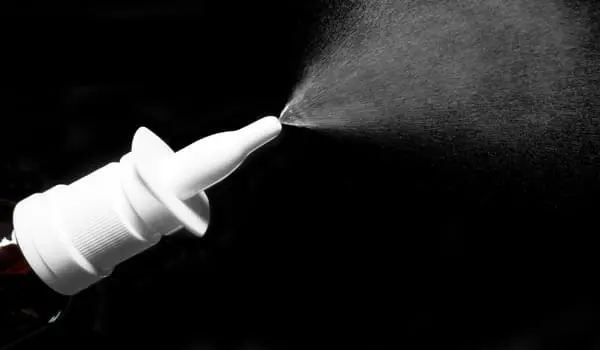Researchers from Osaka City University discovered that combining rifampicin and resveratrol intranasally is safer and improves cognitive function more than rifampicin alone in mice models of Alzheimer’s disease, frontotemporal dementia, and dementia with Lewy bodies. The findings of the study are expected to pave the way for the development of a safe and effective nasal spray for the prevention of dementia.
A follow-up study on the effects of resveratrol on Alzheimer’s disease reveals new information about the immune response within the brain. Although not a cure, the molecule, and its effects will help focus future research.
Resveratrol is a natural phenol that plants produce in response to attack or injury. A variety of foods contain the compound, including grapes, blueberries, raspberries, red wine, and dark chocolate. Caloric restriction is known to reduce age-related diseases in animals, and resveratrol is known to mimic caloric restriction by releasing the same proteins – sirtuins – which is why the molecule is of interest to those studying the neurodegenerative, age-related disease.
The number of dementia patients is increasing all over the world, with some sources predicting a doubling every 20 years. However, no effective treatment for the disease is currently available. Recent studies have shown that abnormalities in the brains of dementia patients begin to appear more than 20 years before the disease’s onset.
Tomohiro Umeda.
Dementia is thought to occur when proteins called amyloid-, tau-, and -synuclein accumulates in the brain and form oligomers. A team from the Department of Translational Neuroscience at Osaka City University Graduate School of Medicine previously demonstrated in a mouse study that the antibiotic rifampicin removes oligomers from the brain and improves cognitive function. However, the drug has been linked to side effects such as liver damage. Resveratrol, a naturally occurring antioxidant in plants, is used as a supplement in Europe and the United States. “To combat the negative side effects of the existing drug rifampicin, we thought of combining it with the hepatoprotective effects of resveratrol,” explains Professor Takami Tomiyama, who served as the study’s lead investigator.
This time, the researchers gave mice models of Alzheimer’s disease, frontotemporal dementia, and dementia with Lewy bodies a fixed-dose combination of rifampicin and resveratrol intranasally five days a week for four weeks and observed their cognitive functions and brain pathology. The combination significantly improved the mice’s cognitive function, inhibited the accumulation of oligomers, and restored synaptophysin levels – presynaptic proteins that facilitate synapses. Furthermore, in the fixed-dose combination, blood levels of liver enzymes, a marker of hepatic damage that normally rises with rifampicin, remained normal.

Furthermore, increased levels of brain-derived neurotrophic factor (BDNF) expression were observed in the hippocampus, which was not seen with rifampicin alone. These results indicate that this fixed-dose combination is superior to rifampicin alone in terms of both safety and efficacy. The results of this study were published online in the Swiss scientific journal Frontiers in Neuroscience.
“The number of dementia patients is increasing all over the world, with some sources predicting a doubling every 20 years. However, no effective treatment for the disease is currently available” According to the study’s first author, Specially Appointed Lecturer Tomohiro Umeda. “Recent studies have shown that abnormalities in the brains of dementia patients begin to appear more than 20 years before the disease’s onset.” The research team hopes to diagnose and prevent dementia by investigating new therapeutic purposes for existing drugs, a process known as drug repositioning.
Furthermore, based on the team’s previous research, nasal administration of a fixed-dose combination of rifampicin and resveratrol would increase drug transferability to the brain, improving both safety and therapeutic effects. The dose used in this study was 0.02 mg of rifampicin per mouse per day, or 1 mg/kg/day assuming a 20g mouse. “When converted to a human dosage based on body surface area, it becomes 0.081 mg/kg/day,” Prof. Tomiyama explains. “Currently, rifampicin is prescribed as an antibiotic at 10 mg/kg/day, and we confirmed an effect at a much lower dosage.”
Medilabo RFP, a venture company founded in the laboratory of the research team, is currently developing a fixed-dose combination of rifampicin and resveratrol nasal spray. Following the publication of this paper, Medilabo RFP has begun planning for global clinical trials. Medilabo RFP established a subsidiary in Massachusetts, USA, in November 2021, with the assistance of the Japan External Trade Organization (JETRO).





